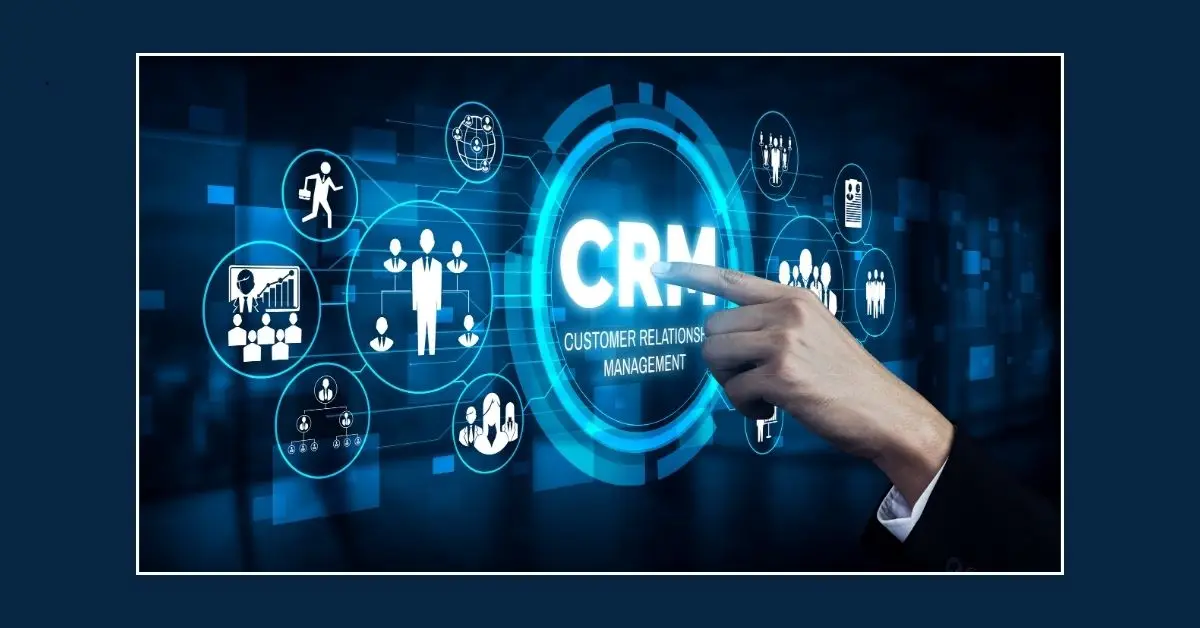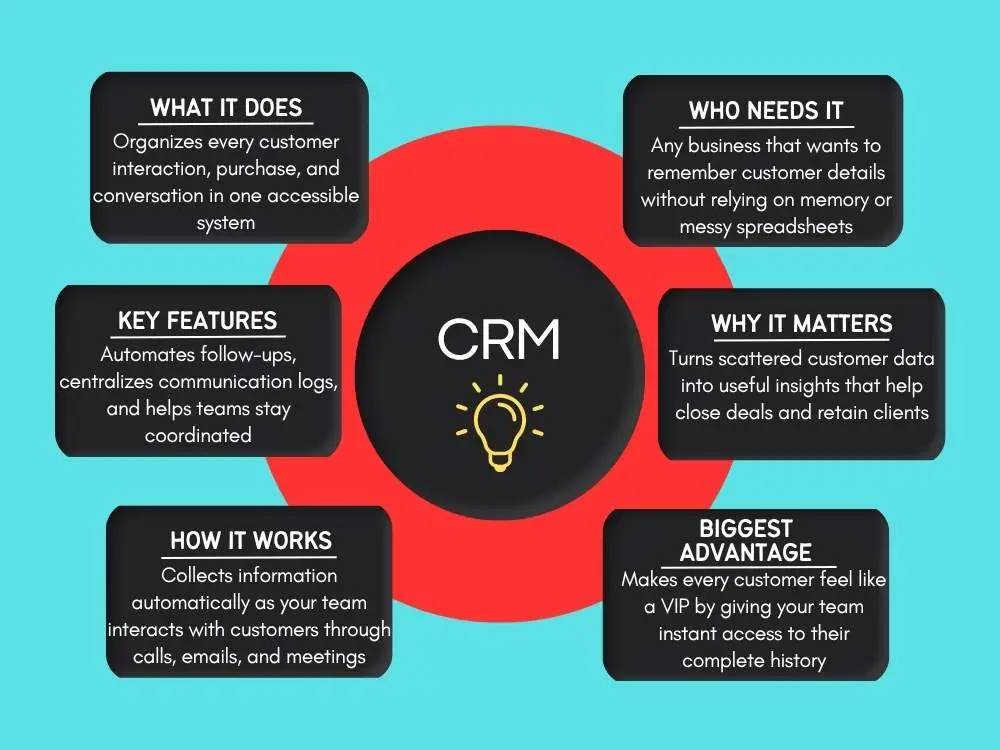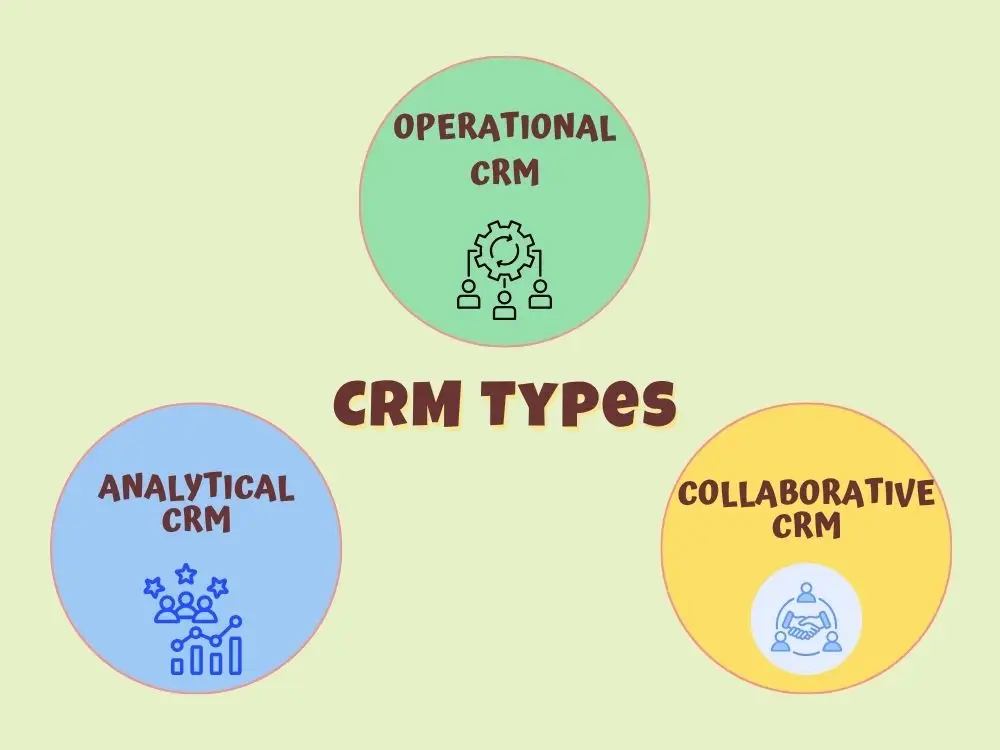
What Is Customer Relationship Management (CRM)? Definition, Benefits, and Software Examples
How do some companies remember every detail about their customers without missing vital information? A system known as Customer Relationship Management, or CRM, is the answer. It's almost like a single place to keep track of every time you engage with your customers. Firms can build stronger bonds rather than losing important details in endless spreadsheets.
This not only makes things easier but also helps you serve customers better. If you are curious to know how businesses stay connected with their audience and want to grow your own, this guide will take you to the bottom of what CRM is all about and why it matters for your success.
Key Takeaways
- Understand CRM and the reasons for its importance in your business.
- Know the different types of CRM systems and the key benefits.
- Discover the popular CRM software tools with their strengths, pros, and cons to help you decide.
- Find out how to pick the right CRM, avoid common mistakes, and what the future holds for CRM technology.
What Exactly Is CRM?
CRM means Customer Relationship Management. It's a system to manage all your interactions with customers and potential sales prospects. Consider it as a digital assistant remembering everything about your customers, such as their identities, purchases, likes, and even complaints.

A CRM is valuable for you to:
- Collect all data regarding a customer in one location.
- Perform automatic execution of repetitive tasks such as contacting or entering data.
- Support communication, coordination, and information sharing with your sales, marketing, and support teams, as well as create the same efficiencies.
- Contribute to stronger relationship building by making every customer interaction the same and consistent.
It's data organization that is just intelligent and assists you in making well-informed choices. At the same time, your customers are feeling like VIPs and not just another random number in your database.
Why CRM Matters More Than Ever
Companies are using CRM to manage their contacts in an efficient manner and to uphold a strong relationship with customers. If they don't have a CRM in place, they will miss a lot of opportunities since today's customers have more options than ever. Let's go through some points that support the need for CRM:
1. Better Customer Retention
A CRM allows you to see every interaction. This ensures your staff are kept in the loop about all the important facts. You will be aware of the times for contacting your potential customers, making follow-ups, or giving assistance without being intrusive. Happy customers stick around. And returning customers tend to spend more.
2. Improved Collaboration
When you have a CRM, you can definitely improve collaboration because every interaction or deal update lives in one place. If you don't have a CRM, collaboration fails. For example, a sales rep may call a customer who was already contacted by another rep just an hour ago.
3. Enhanced Productivity
Manual data entry is a tiresome job. A good CRM helps automate tasks like sending out follow-up emails, call logging, and updating the sales pipeline. So, your sales team can focus on closing the deals rather than on updating the spreadsheets.
4. Data-Driven Decisions
CRMs give you real insights instead of guessing what’s working. You can track customer behavior and sales trends all without needing a PhD in analytics. The real numbers help you make decisions accurately.
The Different Types of CRM Systems

CRM systems come in different categories. The one that best fits your needs is the one that really matches your actual needs.
- Operational CRM: This system aims to make your daily work simple and faster. It manages tasks like sales tracking and customer service tickets. Your team no longer finds itself struggling with repetitive tasks. The system takes care of the monotonous work automatically.
- Analytical CRM: This one is designed to analyze your data and tell you what's really going on. You can easily find out which customers are the most profitable or discover trends that you were unaware of before. It's like a real companion that reads data and helps you make decisions.
- Collaborative CRM: It keeps your whole team connected. When a sales rep talks to a customer, the support can also see those notes. This lets everyone know what's happening in your team. So, customers don't have to repeat themselves over and over.
Some companies only use one type of CRM, while others adopt a mix according to what's effective. There isn’t an ideal CRM system for every company. It all depends on how you manage your business and what issues you need to fix.
Key Benefits of Using a CRM
So you get what a CRM does. But what does it actually do for you? Let’s see the biggest benefits that make CRM systems so useful.
- 360° Customer View: You can check full details about your customers. This includes their purchase history, preferences, support tickets, and even those late-night inquiries. These details help you personalize your approach.
- Better Communication: No more doubts about who talked to this lead last? moments. A CRM keeps all communication in one thread, whether it’s emails, calls, chat logs, or any other.
- Sales Forecasting: Want to predict your next big revenue month? CRMs help you forecast sales based on past data. This is important for you to grow sales and make more money.
- Marketing Automation: This is another crucial benefit of a CRM system. You can run email campaigns that normally send personalized messages to your customers based on their behavior. Check this guide on marketing automation to get a complete idea.
- Customer Support That Actually Supports: CRMs don’t just help sales teams. They help support reps track issues, log resolutions, and respond faster. Nothing says “we care” like a quick and informed response.
- Scalability: As your business grows, so does your customer data. A good CRM grows with you, and no more losing leads in the shuffle.
Popular CRM Software Examples
Let's move on to the main part. The current best CRM software solutions available in the market. Here's a quick review of the strongest ones and the reasons for their popularity.
| CRM Tool | Best For | Key Strengths | Pros | Cons |
|---|---|---|---|---|
| HubSpot CRM | Small to medium-sized businesses that love free tools |
|
|
|
| Salesforce CRM | Large enterprises that are data-oriented and depend on them |
|
|
|
| Zoho CRM | Those who aren't willing to spend much but still demand the best |
|
|
|
| Pipedrive | Selling teams that need a straightforward solution |
|
|
|
| Freshsales | Startups that want AI-powered insights |
|
|
|
How to Choose the Right CRM for You
Now you know what software tools are available to choose from. But how do you pick the best CRM tool for you? You need to ask yourself the questions below:
- What’s my main goal? Is it sales, marketing, or customer support?
- How big is my team? Some CRMs are suitable for small teams. Some are built for enterprises.
- What’s my budget? Be honest, because CRM costs may rise quickly.
- Do I need integrations? This is vital because if you are already using tools like Slack or QuickBooks, make sure your CRM integrates well with them.
IMO, the best CRM is the one that your team actually uses. Even the fanciest platform means nothing if your staff avoids it.
Common CRM Mistakes & How to Avoid Them
Mistakes like these can even turn the best CRM into a useless one. Let us analyze the major factors that things usually go wrong, plus the ways to fix them.
- Overcomplicating things: Don't expect every feature from the very beginning. Choose the most important things and grow from there.
- Not training your team: A CRM is useless if no one knows how to use it. Your team should get proper training and a quick walkthrough. Make sure to take them through the actual process and show them.
- Failing to keep data clean: Duplicates and outdated info pile up fast and create a nightmare. Clean-up habits should be part of the data management from the very beginning. It'll save you tons of headaches in the future.
- Ignoring analytics: The CRM gives you insights for a reason. If you're not looking at the numbers, then you're missing the whole point. Look at your reports and really use what they are telling you.
Address these problems, and your CRM experience will change from frustration to fantastic.
The Future of CRM
CRMs evolve very fast. The next generation includes AI-driven predictions, voice-enabled assistants, hyper-personalization, and many more. Basically, your CRM might soon remind you when a lead is about to ghost you. (Creepy? Maybe. Useful? Absolutely.)
We’re moving toward systems that learn your habits and automate smarter, which deliver experiences that feel human, not robotic. The line between sales tool and business partner is blurring fast.
Wrapping Up
So, what's Customer Relationship Management all about? It's about knowing your customers and maintaining those relationships. A good CRM keeps all that messy data organized, accessible, and actually useful. If you've ever thought, there's got to be an easier way to manage this, well, there is and it probably starts with a CRM.
FAQs
Q1: How much does CRM software cost?
Some tools like HubSpot, offer free versions. However, others range from $10 to $300+ per user monthly. The cost depends on the features you need.
Q2: Do I need technical skills to use a CRM?
Not necessary. Most modern CRMs are built for regular users. If you can use email or basic software, you can handle a CRM.
Explore Related Posts
https://smarttoolsai.com/post/enterprise-resource-planning-erp
https://smarttoolsai.com/post/digital-gifting-in-customer-retention
.webp)